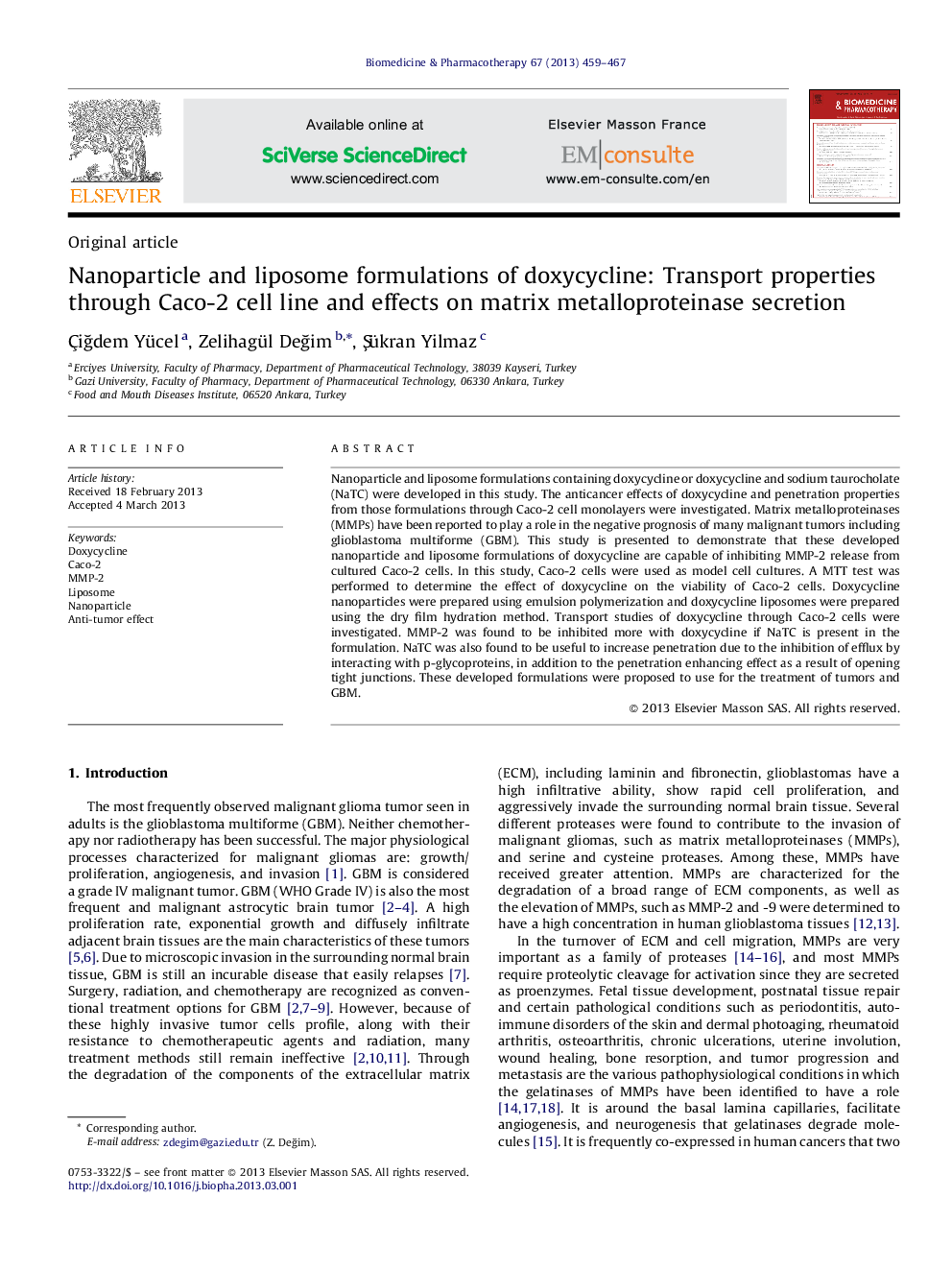| Article ID | Journal | Published Year | Pages | File Type |
|---|---|---|---|---|
| 2524417 | Biomedicine & Pharmacotherapy | 2013 | 9 Pages |
Nanoparticle and liposome formulations containing doxycycline or doxycycline and sodium taurocholate (NaTC) were developed in this study. The anticancer effects of doxycycline and penetration properties from those formulations through Caco-2 cell monolayers were investigated. Matrix metalloproteinases (MMPs) have been reported to play a role in the negative prognosis of many malignant tumors including glioblastoma multiforme (GBM). This study is presented to demonstrate that these developed nanoparticle and liposome formulations of doxycycline are capable of inhibiting MMP-2 release from cultured Caco-2 cells. In this study, Caco-2 cells were used as model cell cultures. A MTT test was performed to determine the effect of doxycycline on the viability of Caco-2 cells. Doxycycline nanoparticles were prepared using emulsion polymerization and doxycycline liposomes were prepared using the dry film hydration method. Transport studies of doxycycline through Caco-2 cells were investigated. MMP-2 was found to be inhibited more with doxycycline if NaTC is present in the formulation. NaTC was also found to be useful to increase penetration due to the inhibition of efflux by interacting with p-glycoproteins, in addition to the penetration enhancing effect as a result of opening tight junctions. These developed formulations were proposed to use for the treatment of tumors and GBM.
